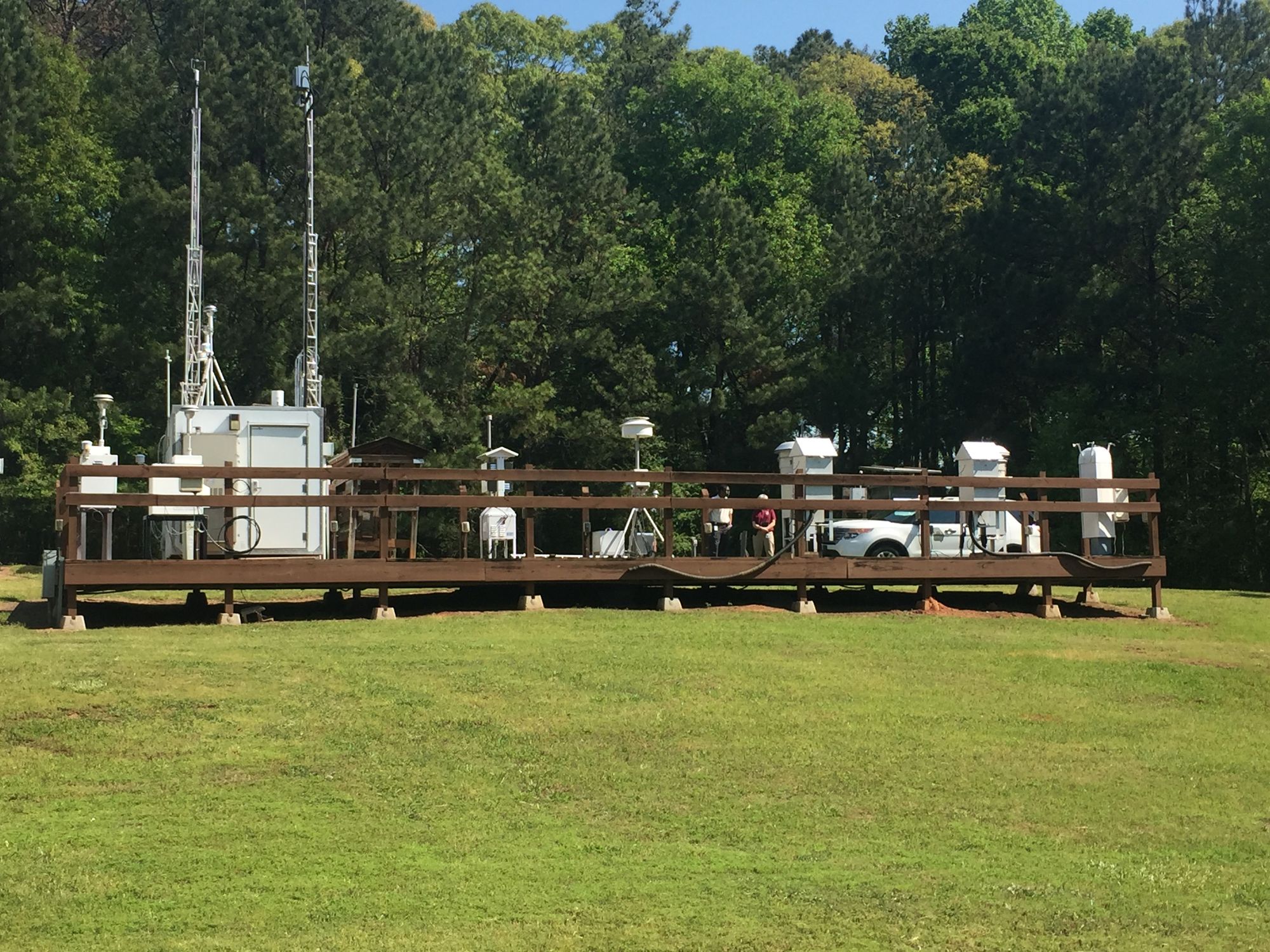QuantAQ and ASCENT collaborate to advance aerosol measurement capabilities using air sensors

We are excited to announce that QuantAQ has signed a joint development agreement with the Atmospheric Science and mEasurement NeTwork (ASCENT) through the Georgia Institute of Technology to improve our ability to measure aerosols in diverse environments and to identify types and sources of air pollution using distributed air quality sensor measurements.
“Identifying the types and sources of air pollution is a critical step in mitigating the root cause and limiting human exposure to air pollution. Traditionally, this has been done using expensive mass instruments that are hard to scale,” says QuantAQ CEO David Hagan. “Over the past few years, QuantAQ, MIT, and Georgia Tech have pioneered the methods for the source attribution and identification of air pollution using these lower-cost air sensors, and this is an incredible opportunity to continue developing these approaches with incredibly accomplished and capable collaborators to help tackle air pollution on a global scale.”
ASCENT is a network of 12 sites across the United States equipped with high-time-resolution research-grade tools to characterize the chemical and physical properties of aerosols. Operated through the Georgia Institute of Technology and funded through the NSF Mid-Scale Research Infrastructure program, ASCENT establishes a comprehensive long-term measurement network to improve data and knowledge available on aerosol composition and properties, geographic and temporal air quality trends, and more.
Aerosols, also known as particulate matter, are a major air pollutant that contribute to significant health concerns for humans and the climate. As scientists work to understand the sources, properties, and impacts of aerosols, they require tools capable of producing frequent reliable data. The ASCENT team will co-locate QuantAQ’s MODULAIR sensors alongside research-grade instruments at each of its sites. The sites are a mixture of urban, rural, and tribal environments, designed to collect a broad range of data on air quality in diverse geographic locations.
“Co-locating the sensors with these advanced instruments will allow us to really have a better understanding of how the size and the composition of the aerosols and the environment itself—temperatures and humidity—impact sensor performance,” says Georgia Tech Professor Nga Lee (Sally) Ng, the lead principal investigator for ASCENT.
Ph.D. candidate Sabrina Westgate in the School of Chemical and Biomolecular Engineering at Georgia Tech will lead in collecting and organizing data from the QuantAQ sensors. The data will be examined to analyze trends in pollution sources with comparisons between the sensors and the research-grade instruments.
“You’re looking at all the different measurements of aerosols that you've seen, how they change over time, how they change with regard to each other, and seeing if you can understand what sources these pollutants are coming from,” Westgate says of the analysis process.
Data from the ASCENT network, now including the QuantAQ sensors, will help researchers address questions on the public health and environmental impacts of aerosols. The existing national monitoring infrastructure for aerosol size and composition is limited in scope and generally has low time resolution. ASCENT provides real-time measurements every few minutes for aerosol size and composition, which has never been done before in the United States at this scale. This key capability enables easily comparable data that reveals smaller-scale changes in real-time.
“These sensors will help give insights into how much of these different trends and changes in aerosol composition are measurable with lower cost alternatives to very expensive mass spectrometers,” says Westgate.
Beyond garnering a more complete comprehension of aerosols, the project will test the capabilities of QuantAQ’s sensors to provide accurate measurements across a range of environmental conditions.
“It is definitely still a growing field of understanding how aerosol composition and other factors impact sensor performance in the field,” Westgate says. “I'm very interested in seeing, ‘can we do something like this with low-cost sensors on a wider scale as well?’”
We’re excited to keep supporting atmospheric science research and advancing our knowledge of air sensors through collaborations with research partners like ASCENT! For more information on the research QuantAQ performs, our publications are available on our website.

